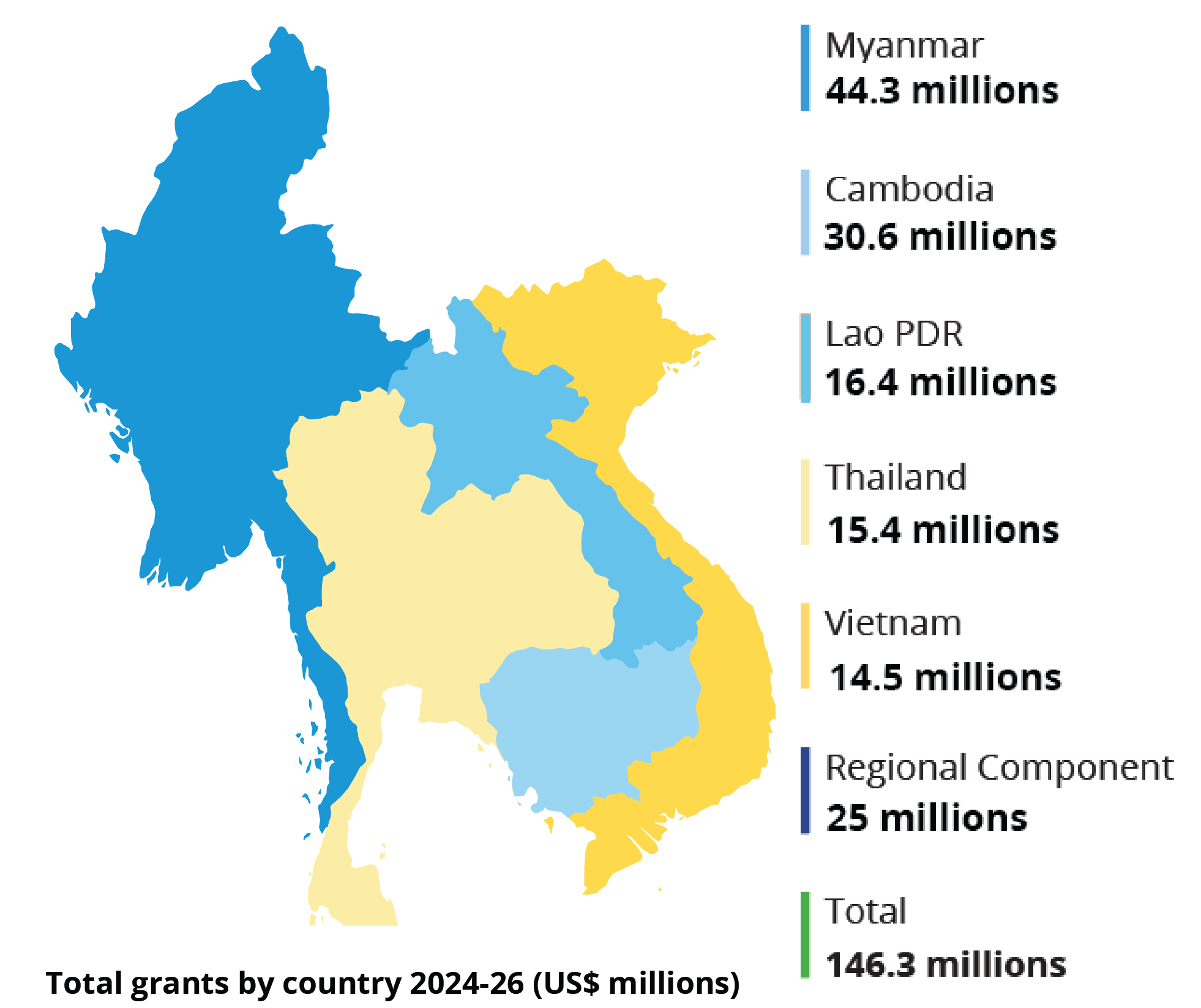Growing resistance to artemisinin (and its partner drugs) in the Greater Mekong Subregion (GMS) represents an immediate and serious threat to malaria control and elimination efforts globally. To tackle this threat, UNOPS Asia Regional Health Cluster (ARHC), as the Regional Principal Recipient, has been making special efforts to escalate progress towards the elimination of malaria transmission and prevention of the spread of drug-resistant malaria with key partners in Cambodia, Lao PDR, Myanmar, Thailand, and Viet Nam in the period 2014–2026.
As the Regional Principal Recipient, UNOPS ARHC has managed US$560.1 million for 2014-2023 to accelerate the elimination of Plasmodium falciparum (Pf) malaria in the five GMS countries. The RAI was expanded for three years (2024–2026) under the fourth phase, the RAI4-Elimination (RAI4E), with a grant approval value of US$146.3 million. The total grant value of the RAI grant from 2014 to 2026 is US$706.4 million.
The RAI grant supports increased malaria service coverage for remote populations in border areas and other at-risk populations, as well as case management through health volunteers and the strengthening of national surveillance systems. The RAI4E is designed to eliminate malaria by 2030 in all GMS countries and accelerate progress toward targets related to the elimination of Plasmodium falciparum (Pf) and Plasmodium vivax (Pv) malaria including drug-resistant Pf.
The RAI4E funding is split across five country components and one regional component which includes three packages and one sub-package that funds cross-border areas. The regional component will address international border needs, which require a dynamic, multi-country effort, and provide complementary activities that are more effectively suited for a regional approach. This component will also support collaboration between countries on addressing challenges to malaria elimination and will foster the sharing of lessons learned among countries on interventions that have proven cost-effective at reducing malaria transmission.
To achieve the goal of RAI, UNOPS ARHC implements in collaboration with existing Global Fund partners at the country level and under the strategic oversight of the RAI Regional Steering Committee (RSC). UNOPS ARHC works closely with the ministries of health, international and local NGOs, civil society organizations (CSOs) and United Nations partners to deliver the targets in the various grant agreements.
The RAI grant funding has been used to purchase key malaria commodities, including vector control, diagnostics and quality-assured drugs; develop surveillance systems, support case management by community health workers, and build resilient and sustainable health and community systems.




